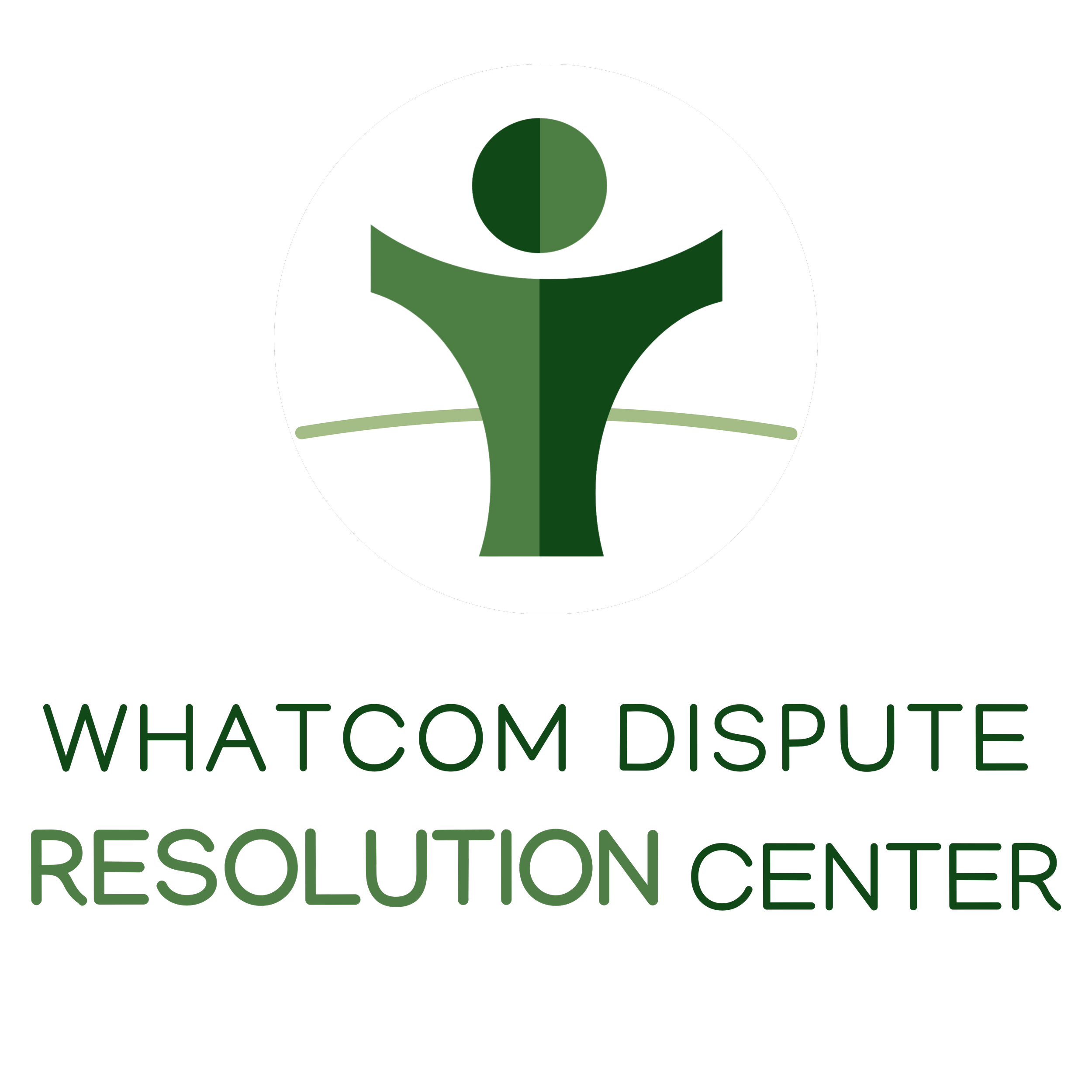“This is the best way to resolve any dispute calmly and respectfully.”
-Mediation Client
What is mediation?
Watch the story of Jessika and Adrian, two brave parents who participated in family mediation at the WDRC
Mediation is a voluntary, confidential, and affordable process for resolving conflict with the help of a neutral, trained professional. The mediator assists parties in creating their own agreements using a proven process which addresses the interests of all parties involved. Participants often leave with a greater understanding of the situation and a mutually satisfying resolution.
Is it successful?
Yes! On average, parties that use the WDRC experience an 80% success rate in creating mutually acceptable settlements. Further, the majority of parties that don't come to agreement still indicate a high level of satisfaction with their experience.
-
Mediators at the WDRC are neutral, third party facilitators. They are present to help you communicate effectively with the other party about your dispute and encourage you both/ all to work collaboratively toward a solution. The mediators will not take sides or give advice. They will not tell you what to do or impose a decision on you.
-
In mediation you will be asked to participate in good faith. This will include listening to the other party, keeping and open mind about solutions and truly working toward a win-win solution. You will be asked to give serious consideration to proposals made during the mediation.
-
It is very important for everyone to participate in mediation using basic rules of common courtesy. You will be asked to refrain from interrupting the other party, using inflammatory language, name calling and pushing the other party’s hot buttons.
-
The process is designed to help you communicate with the other person and focus on problem solving. It will include an introductory statement by the mediators, followed by uninterrupted statements by each of you. This statement should focus on what has brought you to the mediation and what you would like to see happen. The mediators will then help the two of you create a list of items to discuss during the mediation. You will be given an opportunity to negotiate with the other person while the mediators assist by facilitating the conversation. Finally the mediators will put into writing any agreements the two of you reach. -
Your case manager can provide support as you prepare for mediation, and we encourage you to ask questions about how best to prepare. In general, it's helpful to think about:
What am I most concerned about?
What's most important to me?
What do I think will be most important to the other people involved?
What can I offer as some possible ways we can solve this
Mediators do not review documents related to your situation, but if there are documents you'd like to share with the other party, it's helpful to bring copies.
-
Neither DRC staff nor the mediators in a case will provide legal advice. If you need the assistance of an attorney prior to your mediation, you are encouraged to seek any outside information you will need to help you negotiate.
How do I get started?
Why Mediate? This video from Resolution Washington gives an overview.
When you have a conflict and could use help in coming to an agreement, simply give us a call. At this time you can speak directly and confidentially to one of our case managers, ask questions, and get information about what to expect. If you choose to try mediation, we will contact the other party and assess their willingness to participate. With their consent, we will move forward to convene a mediation session for a day and time that works for both of you.
Call 360-676-0122 to talk to one of our case managers about first steps for mediation.
What kinds of disputes does the WDRC mediate?
Community
Co-worker and workplace issues
Business/Consumer
Youth
Anti-harassment
Intercultural
Victim/Offender
And many other issues as well
Our Fees
As a nonprofit community mediation center, all of our mediation fees are based upon a sliding scale. We never turn anyone away for an inability to pay.
What type of mediation does the WDRC use?
The Whatcom Dispute Resolution Center practices Facilitative Interest-Based Mediation. Facilitative means the mediators provide a structure to help disputing parties communicate effectively* with one another to develop their own resolutions. Interest-Based means that the mediators will assist parties in identifying and addressing the relevant issues and interests throughout the mediation process. Agreements reached using this model are usually durable and long lasting, because the parties' needs in relation to the dispute are addressed as thoroughly as possible. Research has shown that the most durable and satisfactory agreements are ones that parties have collaboratively created themselves.
*Most often, parties meet together in the same room; however, in special circumstances, we can accommodate separate room sessions. We also offer mediations virtually over zoom.
Want to become a mediator? Visit our Professional Mediation Training and Certification Program page.
Looking for some more conflict tips? Check out our resources page, or visit our trainings page to learn about upcoming workshops and classes.
Preparing for resolution in mediation
What can a mediator do for you?

